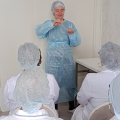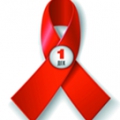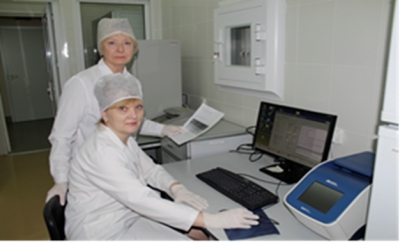|
27 11.2024
World AIDS Day, declared in 1988, was the first internationally recognized day dedicated to health protection. Its purpose is to raise global awareness of HIV/AIDS, provide support to people living with HIV, and unite efforts to combat the spread of this disease.
|
The motto of World AIDS Day 2024 is "Choose the right path - the path of human rights". World AIDS Day is a call to action to protect human health through the protection of the rights of every citizen.
Currently, there is no way to cure the disease caused by the human immunodeficiency virus. However, the availability of modern preventive and diagnostic tools, as well as drugs for the treatment of HIV infection and AIDS/indicator (opportunistic) diseases, the accessibility of PLHIV to the system of dispensary observation and care have made it possible to transfer HIV infection to the category of chronic diseases with a controlled course.
According to UNAIDS estimates, more than 88 million people have been infected with HIV worldwide since the registration of HIV infection, and more than 42 million have died from HIV/AIDS-related diseases.
According to the specialized research department for the prevention and control of AIDS of the Central Research Institute of Epidemiology of Rospotrebnadzor, by the beginning of 2024, 1,197,410 Russians with a laboratory-confirmed diagnosis of HIV infection lived in the Russian Federation, excluding 495,385 patients who died during the entire observation period. Based on the results of monitoring the epidemiological situation for HIV infection in the constituent entities of the Volga Federal District (VFD), conducted by the Volga District Center for the Prevention and Control of AIDS of the Blokhina Research Institute of Epidemiology and Microbiology of Rospotrebnadzor, it was established that by September 30, 2024, 210,681 HIV-infected people were subject to dispensary observation. The HIV prevalence among the population of the Volga Federal District as of the end of September 2024 was 738.20/0000, thus, 0.74% of those living in the subjects of the Volga Federal District currently have a positive HIV status. In four regions of the district, the prevalence rate exceeded the district average: Perm Krai (1398.30/0000), Samara (1304.90/0000), Orenburg (1137.10/0000) and Ulyanovsk (1061.20/0000) regions. The lowest this indicator continues to be recorded in the Kirov Region (222.00/0000) and the Republic of Mordovia (276.90/0000). Antiretroviral therapy (ART) was received by 180,191 HIV-infected people in the district (ART coverage was 90.3% of the number of people under observation). In the first 9 months of 2024, according to the territorial centers for the prevention and control of AIDS and ID, 9,090 new cases of HIV infection were identified in the Volga Federal District, which is 942 people less than in the same period of 2023 (10,032 people). The growth rate of new registered cases of HIV infection in the district in the reporting period was negative (-9.4%). The absolute number of children with a newly diagnosed HIV infection among new cases was 62 people (in the same period of 2023 - 56 people). The average district incidence rate decreased slightly compared to the same period last year (31.80/0000 versus 35.00/0000). In 2024, as in the same period last year, in general, the age structure of newly identified HIV-infected people was dominated by people aged 31-50 years: from 31 to 40 years (33.4% and 36.2%, respectively), from 41 to 50 years (34.5% and 31.9%, respectively). Among newly identified PLHIV in the reporting period, men accounted for 56.7%, women - 43.3%. The epidemic process of HIV infection in the analyzed period of 2024 was characterized by the preservation of the dominant position of the sexual route of HIV transmission (84.3%), realized during heterosexual contacts (98.7%). The share of the sexual (heterosexual) route of infection transmission in the overall structure of transmission routes in 2024 is slightly higher than the indicator for the same period in 2023 (83.3% versus 81.8%). The rate of HIV infection through homosexual contacts in the reporting period remained practically at the level of the previous year (1.1%). With the continuing trend of increasing infection through heterosexual contacts, the proportion of those infected through parenteral use of psychoactive substances continued to decrease. The proportion of infection through parenteral drug use compared to 9 months of the previous year was 14.9% (16.5% in 2023). The widespread use of ART, an increase in the proportion of pregnant women undergoing dispensary observation, and expansion of the coverage of chemoprophylaxis of mother-to-child transmission of HIV at all stages made it possible to significantly reduce the level of perinatal transmission in the Volga Federal District. The proportion of children infected with HIV perinatally in the overall structure of transmission routes in the Volga Federal District for 9 months of 2024 remained at the level of the previous year - 0.5% (36 people). The average district mortality rate of HIV-infected people for 9 months of 2024 was 22.40/0000 (24.70/0000 in 2023). According to the PNP monitoring form, of the number of deceased HIV-infected people, the share of those who died due to HIV infection in the district in the analyzed period of 2024 was 34.5% (versus 37.3% in 2023). Thus, the HIV epidemic continues to develop. Improving the effectiveness of counteracting the epidemic requires more active implementation of systemic measures, including both the prevention of new cases of HIV infection and an increase in treatment coverage for people living with HIV, including monitoring the implementation of chemoprophylaxis of perinatal transmission of the virus. Specialists of the Volga District Center for the Prevention and Control of AIDS (Center) are working on genotyping the human immunodeficiency virus. The results obtained allow treating physicians to choose alternative drugs to prescribe effective treatment regimens, which will help maintain the health, performance and quality of life of an HIV-positive person and slow the spread of infection.
The Center's specialists also conduct preventive measures on HIV infection issues with teachers of educational institutions and young people.
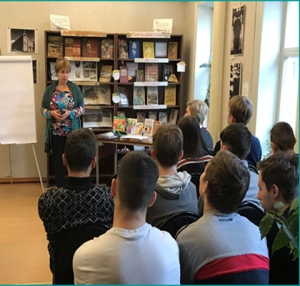 |
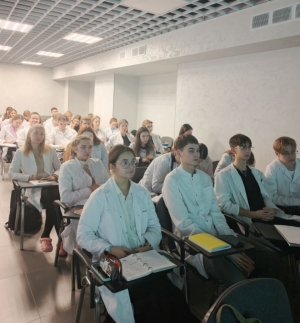 |
Raising public awareness of the HIV problem, using preventive measures together with early diagnosis and timely initiation of treatment for infected individuals is one of the most important factors in counteracting the spread of this infection.
You can ask a specialist a question about the epidemiology, diagnosis, treatment and prevention of HIV infection by calling 469-79-08 - from November 27 to December 10, 2024 on weekdays from 10 am to 3 pm.
At the federal level, the Unified Consultation Center of Rospotrebnadzor operates around the clock - 8 800 555 49 43. The call to the number is free.
